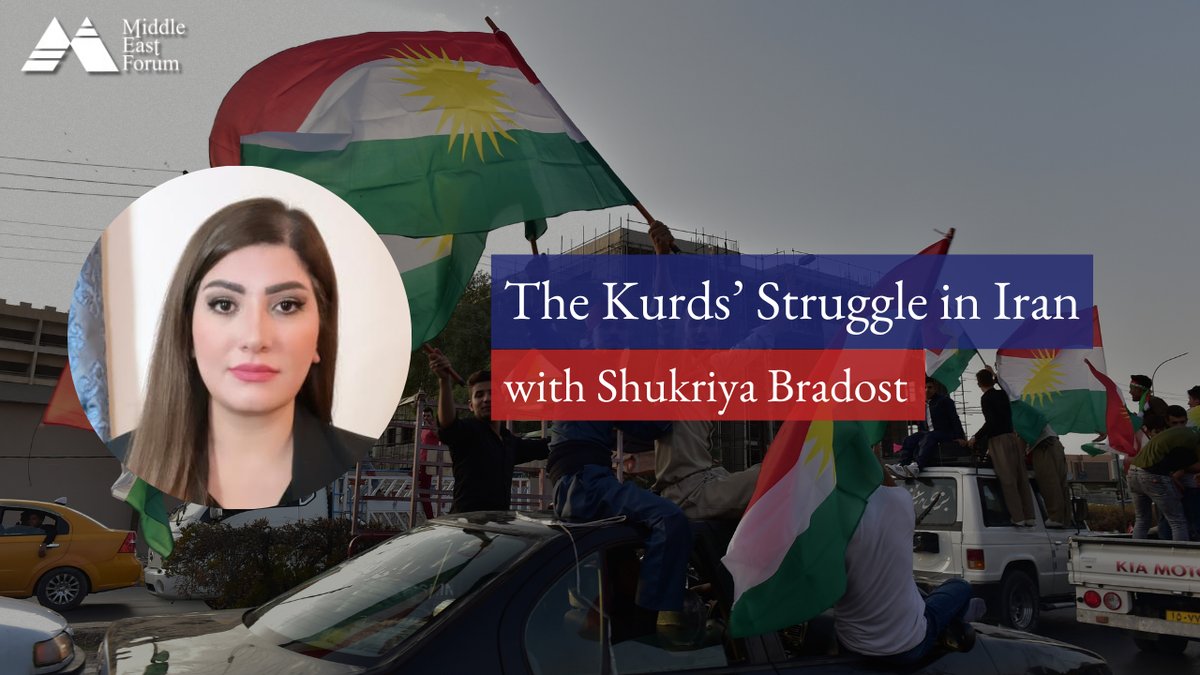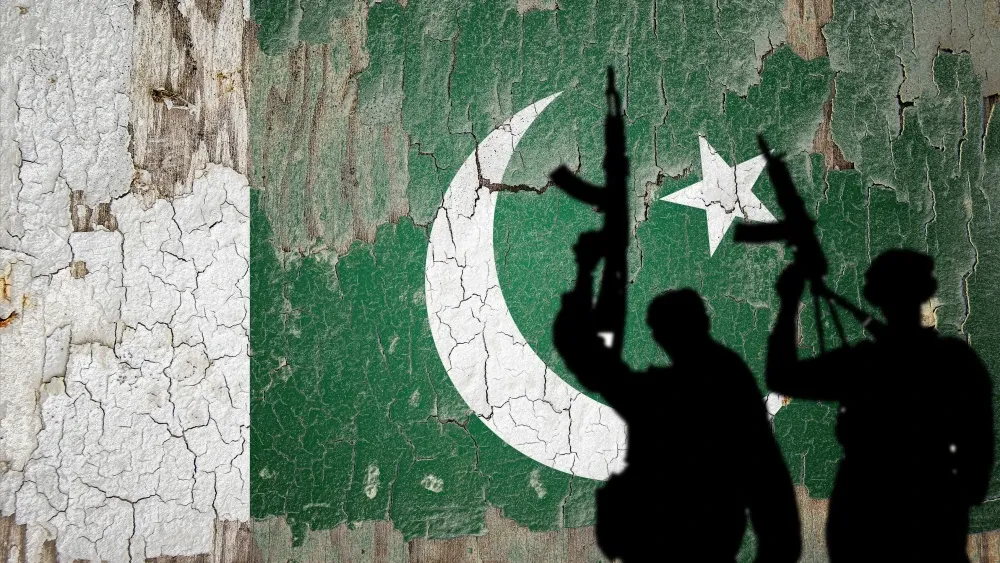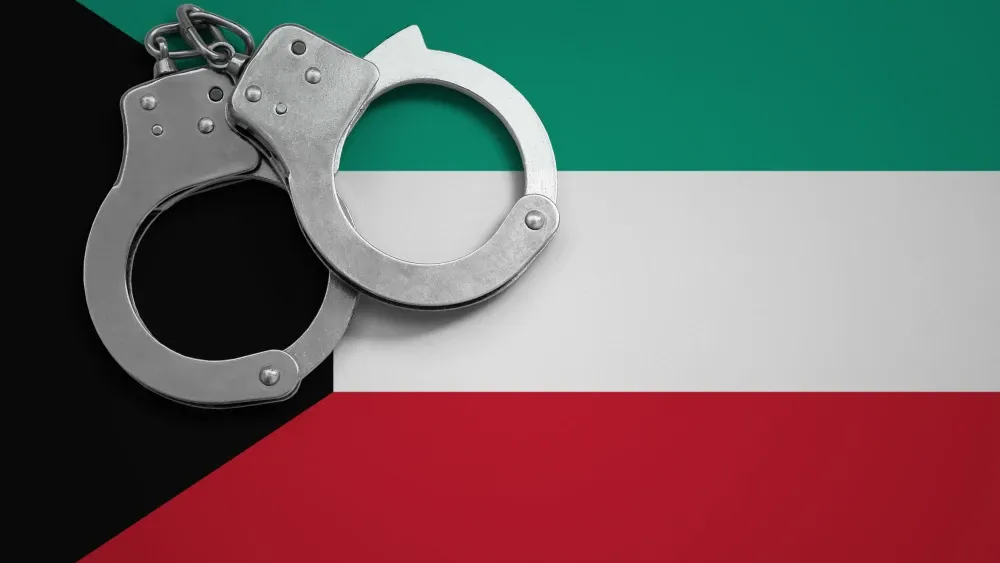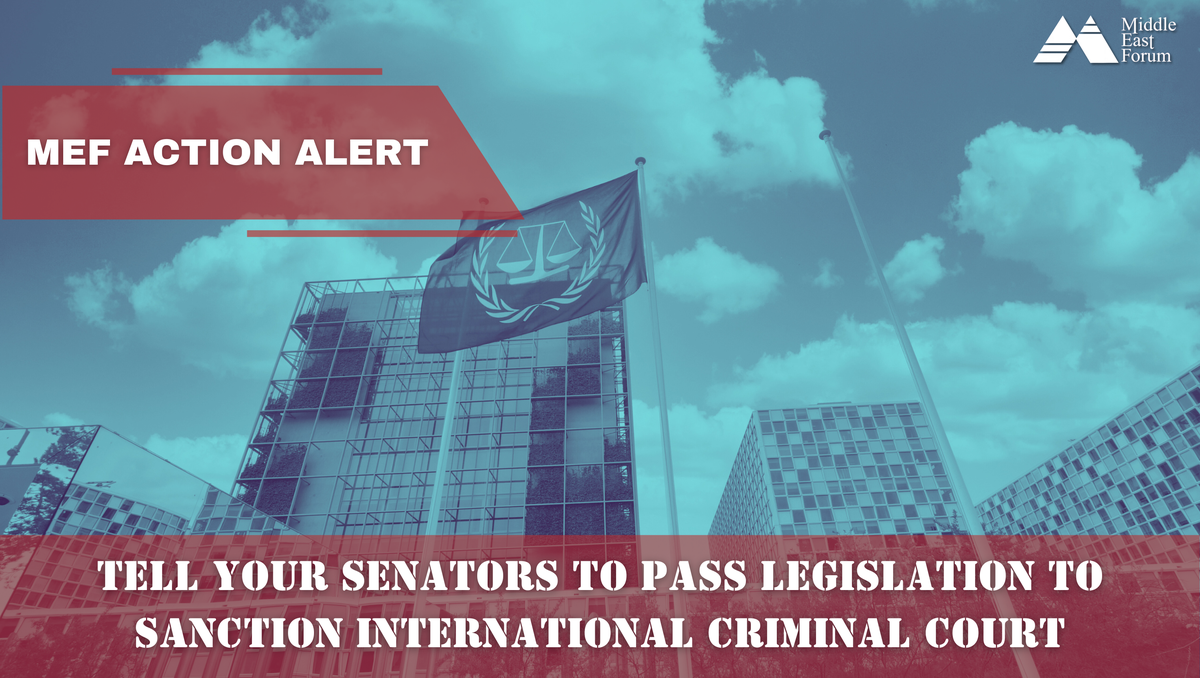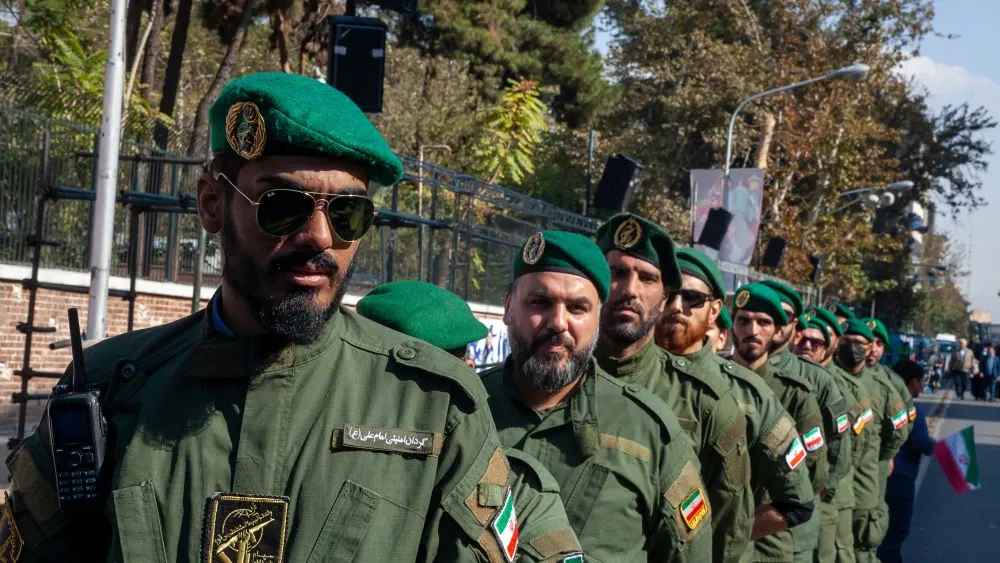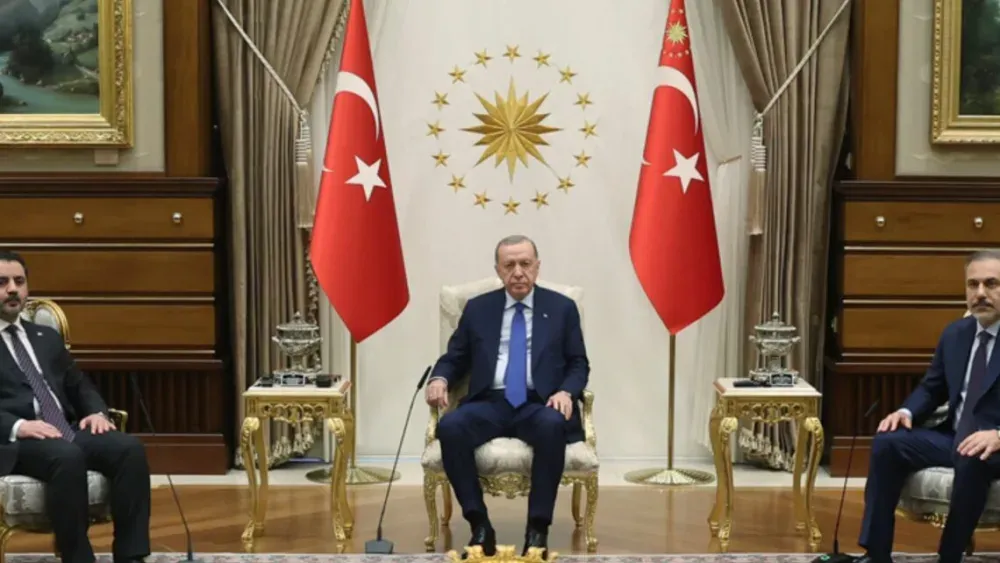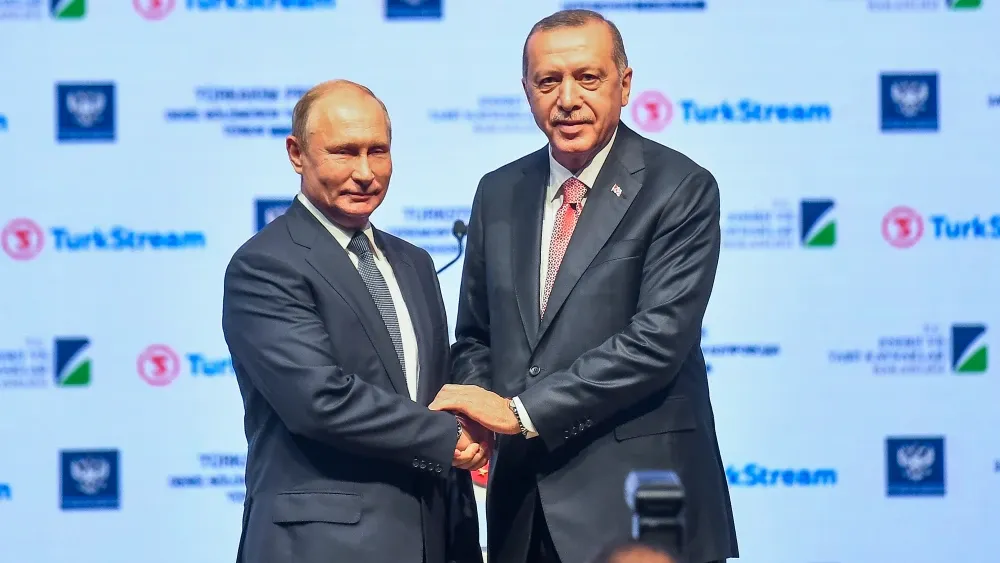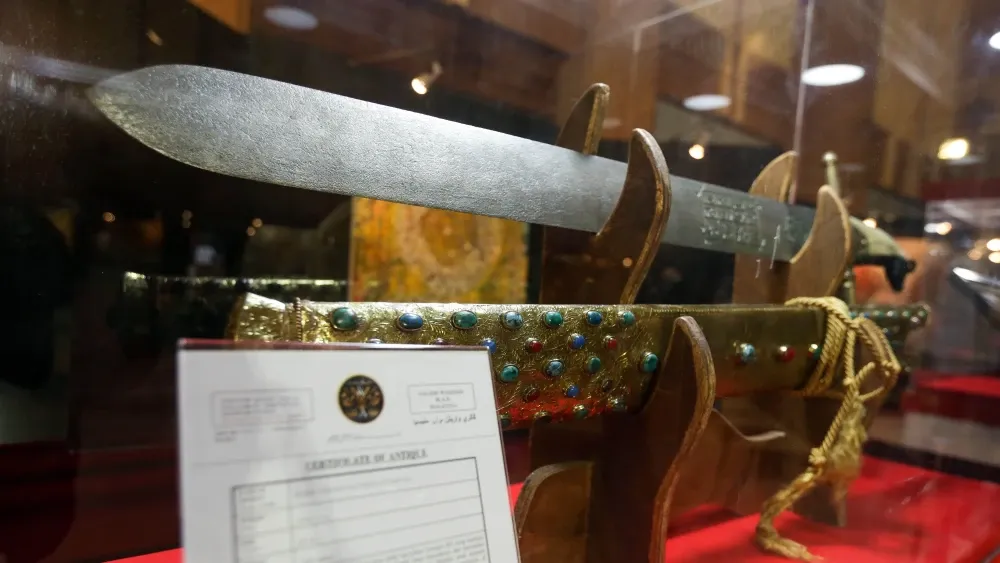| ||
 | ||
| MEF Dispatch: The New Middle Eastern Chessboard – Allies, Enemies, and Anomalies By Winfield Myers ● Jan 27, 2025 Smart Brevity® count: 8 mins...2184 words We begin on a melancholy note with Jonathan Spyer’s second installment on his recent trip to Damascus, a city off-limits for years. Searching for the ancient Syrian capital’s Jewish community, 50,000 strong in 1900, he found, along with secret police from the new regime, “seven old Jews, a locked synagogue, and a ruin.” From there we report how the once-respectable British journal of medicine the Lancet lent what remains of its now-tattered reputation to Israel-bashing in grossly exaggerating even Hamas’s already-mendacious Gazan death count. Reporting additional anti-Israel news, we warn that Pakistan-backed South Asian terror networks could be next to target the Jewish state. From Kuwait, the arrest of a pro-Israel journalist shows that the Muslim Brotherhood’s influence remains pervasive there even as the broader Gulf Cooperation Council adopts a far more pragmatic approach to relations with Israel. Iraq has through default acquired a more central role in Iran’s strategic calculations thanks to Tehran’s loss of proxies across the region—all the more reason for the U.S. to remain engaged and active in Iraq lest we hand Khamenei a victory by quitting the fight. Turkey remains a key concern as well. Years ago, its secret intelligence struck a deal with Sunni Islamists in Syria that saw terrorists refrain from attacks on Turkish soil in exchange for logistical support. Today, Turkey leverages its influence in Syria as part of Turkish President Erdoğan’s pursuit of a neo-Ottoman sphere of influence. Finally, we offer another critique of recent revisionist historians who claim falsely that negative images of Muhammad began in the West to justify the Crusades, when in fact criticisms of Islam’s prophet in Syriac sources date to two short years after his death. | ||
ICYMI: “The Kurd’s Struggle in Iran” with Shukriya BradostThe Kurds in Iran lag behind their co-ethnics in Iraq, Syria, and Türkiye in terms of asserting their rights. The movement for Kurdish autonomy has gained visibility but is limited by fragmentation. The Islamic Republic views Kurdish activism as a national security threat. How should the international community engage with the Kurds of Iran? Would external support bolster their cause or further escalate repression? How does Kurdish activism affect the regime’s stability? Shukriya Bradost, an Iranian-Kurdish security analyst, is a doctoral candidate at Virginia Tech University. In addition she is non-resident scholar at the Middle East Institute and a contributor to the Washington Institute for Near East Policy. She has written for Al Jazeera, the Jerusalem Post, and the Observer. She holds a B.A. in law from the University of Salahaddin in Erbil, Iraq, and an M.A. in international security from the University of Leicester. To watch the full podcast episode, click here. To subscribe to the Middle East Forum Podcast, click here. | ||
The Last Jews of Damascus: A Journey Through Memory and RuinsDamascus, once home to a vibrant Jewish community, now stands with only a handful of elderly Jewish residents, amidst a backdrop of ruins and memories. A Community in Decline: The Jewish Quarter of Damascus, once bustling, now hosts merely seven or eight Jewish individuals, the last of Syria's ancient community.
Guardians of Abandoned Heritage: Fuad Hilwani, one of the last Jewish residents, watches over properties threatened by opportunistic claims.
Historic Sites Amidst Ruins: The Eliyahu Hanavi Synagogue, destroyed in 2014, stands as a testament to the Jewish history in Syria.
What's Next: The legacy of Damascus's Jewish community hangs in the balance, reliant on a few remaining individuals and the preservation of their stories.
To read the full article, click here. | ||
The ‘Lancet’ Quadruples Hamas’s Gazan Death CountThe Lancet, a renowned medical journal, grossly inflated Gaza's death toll figures, further ruining its tattered reputation. Inflated Numbers: The Lancet claims Gaza's death toll is nearly 180,000, contradicting reports from Hamas's own sources.
Questionable Methodology: Critics, including the Henry Jackson Society, accuse the Lancet of using flawed data to portray Israel as deliberately targeting civilians.
Awaiting Accountability: While the Lancet focuses on Gaza, there is a noticeable absence of studies on the condition of Israeli hostages held by Hamas.
What's Next: As debates continue, there is a call for the Lancet to uphold rigorous standards and provide balanced perspectives in its publications.
To read the full article, click here. | ||
Get Ready for Pakistan-Backed Groups to Target IsraelThe ceasefire between Israel and Hamas has exposed vulnerabilities, with Pakistan-backed terror networks emerging as a new threat to Israel and India. New Alliances Forming: Anti-Israel cooperation is growing across Sunni and Shi’ite divides, with connections between groups in West and South Asia.
Historic Blind Spots: Israel's traditional reliance on diplomatic channels with Pakistan may no longer be sufficient.
Strategic Cooperation Needed: India and Israel must intensify military collaboration and intelligence sharing to counter these threats.
What's Next: As the geopolitical landscape shifts, vigilance and strategic alliances will be key to maintaining stability in the region.
To read the full article, click here. | ||
Arrest of Pro-Israel Kuwaiti Journalist Highlights Muslim Brotherhood’s InfluenceThe arrest of Fajr Al-Saeed, a pro-Israel Kuwaiti journalist, underlines the tension between ideological conservatism and pragmatic diplomacy in the Arab world. A Pivotal Arrest: Al-Saeed's detention for advocating normalization with Israel highlights geopolitical shifts in the Middle East.
Muslim Brotherhood's Influence: The Islamic Constitutional Movement, representing the Brotherhood in Kuwait, remains a significant force against Israel ties.
Balancing Act: Kuwait faces a choice between embracing economic and technological cooperation with Israel or adhering to ideological stances.
What's Next: As GCC countries move towards pragmatic relations with Israel, Kuwait must navigate its internal divisions to align with regional trends.
To read the full article, click here. | ||
MEF Action Alert: Tell Your Senators to Pass Legislation to Sanction ICC OfficialsThis week, the U.S. Senate is expected to advance the Illegitimate Court Counteraction Act (ICCA), a bill to sanction International Criminal Court (ICC) officials for taking actions that threaten our national security interests and jeopardize the safety of millions of Americans. Join the MEF Action campaign to call on your senators to sponsor and pass this crucial legislation. The Issue: Unjustified Arrest Warrants: The ICC has wrongfully issued arrest warrants for Israeli Prime Minister Benjamin Netanyahu and Defense Minister Yoav Gallant. This move was orchestrated to damage Israel’s international standing and obstruct its mission to defeat Hamas. Ongoing Investigation in Afghanistan: The ICC's investigation into alleged war crimes in Afghanistan directly endangers approximately 5.5 million American service members and officials who could be subject to prosecution without due process under U.S. law. This investigation is a direct challenge to our national and military sovereignty. The Legislation: The ICCA, which passed in the House of Representatives on January 9, aims to sanction the ICC for these overreaches. This bill would:
To join the campaign, click here. | ||
Will Iran’s Regime Rally in Iraq?Iran's Islamic Revolutionary Guard Corps (IRGC) maneuvers to strengthen its grip on Iraq, leveraging proxy militias to assert regional dominance. Iran's Tactical Shift: As Tehran recalibrates post-October 7, Iraq becomes pivotal in its strategic calculus.
Political Intrigue: Iraqi Prime Minister Sudani's compromised position benefits Iran, keeping him reliant on Tehran's support.
Western Strategy: To curb Iran's influence, Western powers must demand stricter checks on Iranian cargo and personnel in Iraq.
What's Next: Targeted airstrikes and diplomatic pressure can weaken Iran-backed militias, offering Iraq a chance to regain control.
To read the full article, click here. | ||
A Secret Turkish Intelligence Deal with Hay’at Tahrir al-Sham Included No Attacks in TurkeyA secret between Turkey's intelligence agency and Hay’at Tahrir al-Sham (HTS) reveals Ankara's double game on terrorism, providing support to the group while publicly opposing it. Secret Pact Unveiled: Turkish intelligence (MIT) struck a deal with HTS to avoid attacks on Turkish soil in exchange for support.
Public Deception: Erdoğan's government portrayed compliance with U.N. resolutions, staging false crackdowns on HTS.
Implications for Regional Stability: The collaboration with HTS raises concerns about Turkey's role in regional conflicts.
What's Next: As HTS gains power in Syria, Turkey's covert operations spotlight the need for transparency and accountability in regional politics.
To read the full article, click here. | ||
How Turkey Leverages Itself Between East, Western Worlds to Maximize Geopolitical CloutTurkey leverages its strategic position between East and West to maximize geopolitical influence, signaling a continuing shift away from traditional Western alliances. Strategic Realignment: Turkey's interventions in Syria and Iraq highlight a deeper shift toward Russia and BRICS, challenging NATO cohesion.
Ideological Outreach: Ankara's support for political Islamist movements underscores its long-term investment in shaping political Islam across the Middle East and Europe.
Dual Approach: Turkey leverages NATO membership to cover for its pro-Islamist policies.
What's Next: As Ankara pursues its ambitions, the West must engage with Turkey thoughtfully, balancing strategic cooperation with addressing the challenges posed by its foreign policy.
To read the full article, click here. | ||
When — and Why — Christians First ‘Demonized’ MuhammadKaren Armstrong's revisionist history claims Christians “demonized” Muhammad post-Crusades, but historical records suggest otherwise. Early Perceptions: Christians viewed Muhammad as a "sinister figure" long before the Crusades.
Historical Evidence: Early accounts describe violent conquests and massacres by Muhammad's followers.
Debunking Myths: Armstrong's narrative mirrors other revisionist histories that absolve Islamic conquests of violence.
Conclusion: A balanced historical perspective requires acknowledging the complexity of early Christian-Muslim relations.
To read the full article, click here. | ||
| The loss of Syria’s once-thriving Jewish community, hostility to Israel from Western scientists and historians as well as from jihadis from the Middle East and beyond, and Turkey’s rising alliance with newly-empowered Islamists fill this issue of the Dispatch. We offer analyses of these and other developments in the belief that fulfilling MEF’s mission to promote American interests in the Middle East and protect Western values from Middle Eastern threats rests upon keeping you, our readers and supporters, informed and enlightened about these complex issues. Our next issue will arrive soon. | ||
| Was this edition useful? Your responses are anonymous | ||
| Powered by | ||
| ||

